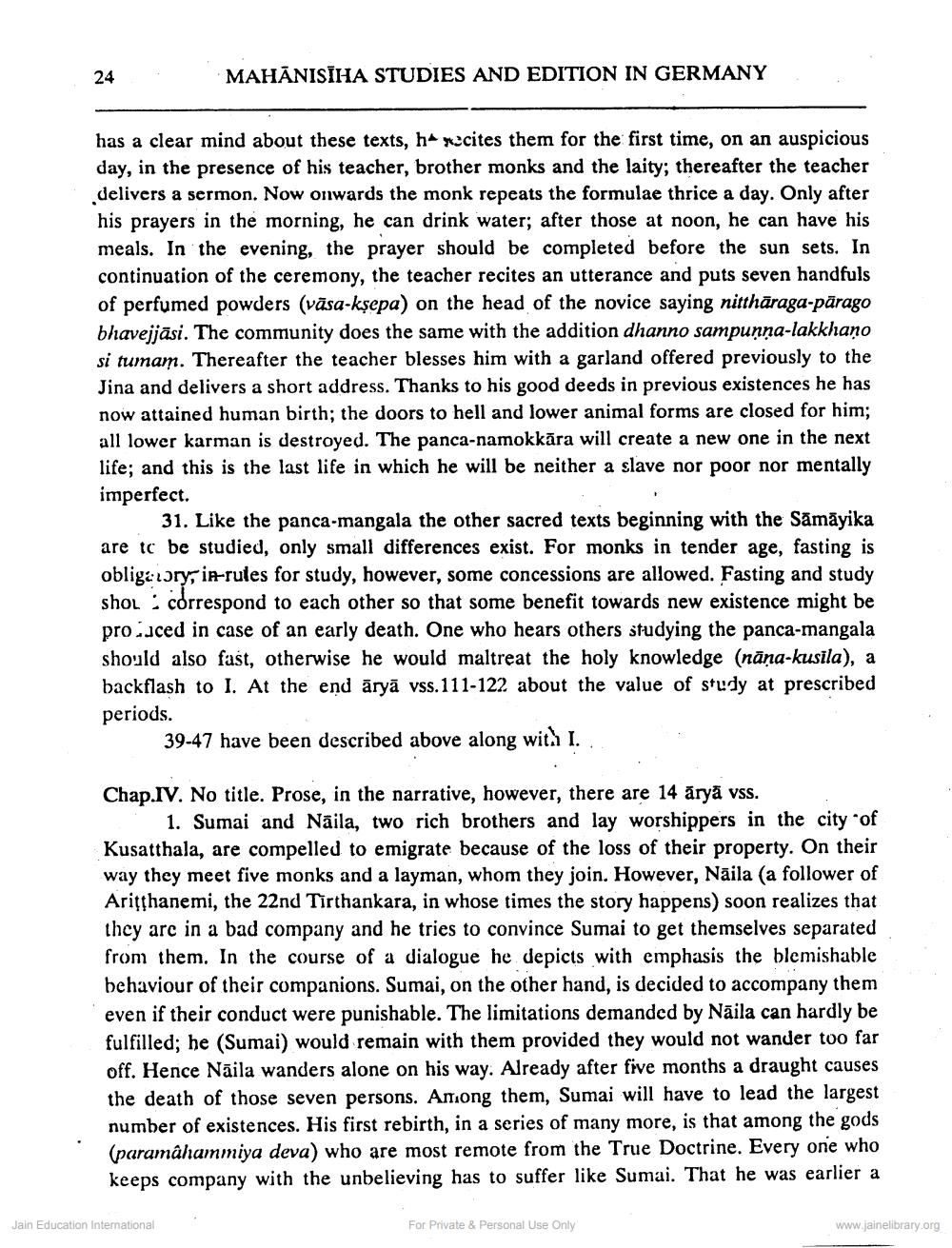________________
24
MAHĀNISĪHA STUDIES AND EDITION IN GERMANY
has a clear mind about these texts, ho xucites them for the first time, on an auspicious day, in the presence of his teacher, brother monks and the laity; thereafter the teacher delivers a sermon. Now onwards the monk repeats the formulae thrice a day. Only after his prayers in the morning, he can drink water; after those at noon, he can have his meals. In the evening, the prayer should be completed before the sun sets. In continuation of the ceremony, the teacher recites an utterance and puts seven handfuls of perfumed powders (vāsa-ksepa) on the head of the novice saying nitthāraga-pārago bhavejjāsi. The community does the same with the addition dhanno sampunņa-lakkhaņo si tumam. Thereafter the teacher blesses him with a garland offered previously to the Jina and delivers a short address. Thanks to his good deeds in previous existences he has now attained human birth; the doors to hell and lower animal forms are closed for him; all lower karman is destroyed. The panca-namokkāra will create a new one in the next life; and this is the last life in which he will be neither a slave nor poor nor mentally imperfect.
31. Like the panca-mangala the other sacred texts beginning with the Sāmāyika are to be studied, only small differences exist. For monks in tender age, fasting is obliga dry, in-rules for study, however, some concessions are allowed. Fasting and study shou : correspond to each other so that some benefit towards new existence might be proaced in case of an early death. One who hears others studying the panca-mangala should also fast, otherwise he would maltreat the holy knowledge (nāna-kusila), a backflash to I. At the end āryā vss.111-122 about the value of study at prescribed periods.
39-47 have been described above along with I.
Chap.IV. No title. Prose, in the narrative, however, there are 14 āryā vss.
1. Sumai and Nāila, two rich brothers and lay worshippers in the city of Kusatthala, are compelled to emigrate because of the loss of their property. On their way they meet five monks and a layman, whom they join. However, Nāila (a follower of Arithanemi, the 22nd Tirthankara, in whose times the story happens) soon realizes that they are in a bad company and he tries to convince Sumai to get themselves separated from them. In the course of a dialogue he depicts with emphasis the blemishable behaviour of their companions. Sumai, on the other hand, is decided to accompany them even if their conduct were punishable. The limitations demanded by Nāila can hardly be fulfilled; he (Sumai) would remain with them provided they would not wander too far off. Hence Nāila wanders alone on his way. Already after five months a draught causes the death of those seven persons. Among them, Sumai will have to lead the largest number of existences. His first rebirth, in a series of many more, is that among the gods (paramahammiya deva) who are most remote from the True Doctrine. Every one who keeps company with the unbelieving has to suffer like Sumai. That he was earlier a
Jain Education International
For Private & Personal Use Only
www.jainelibrary.org




